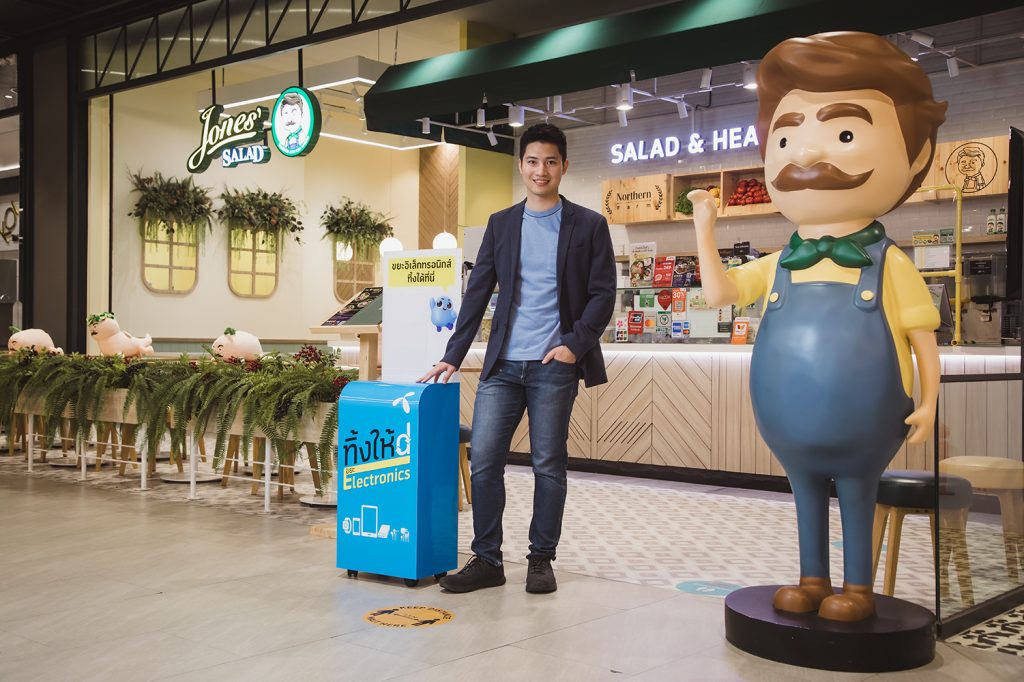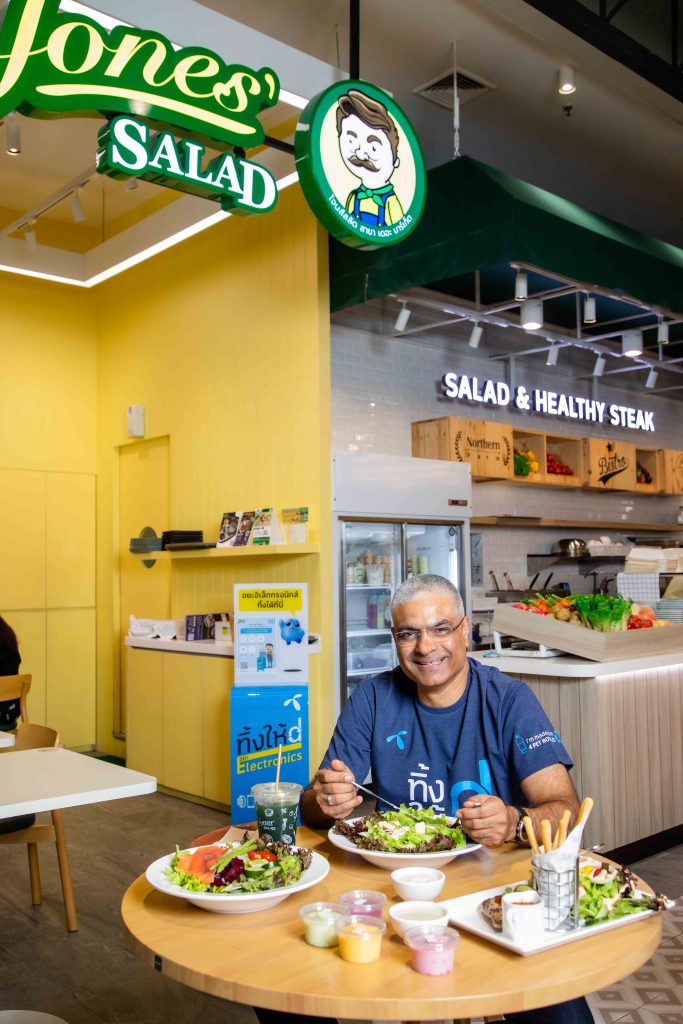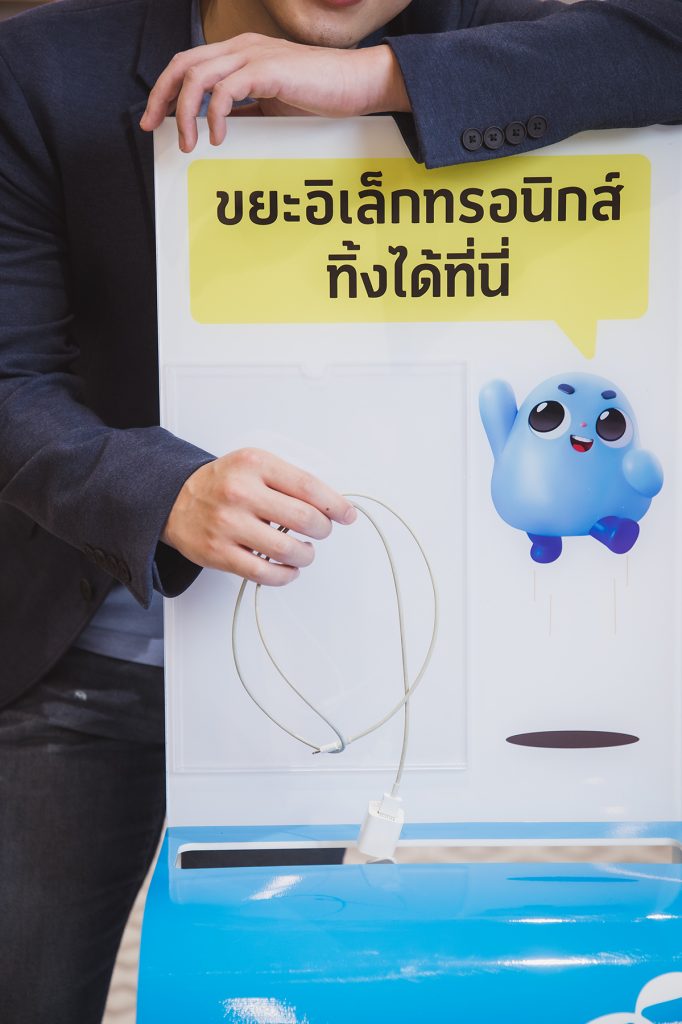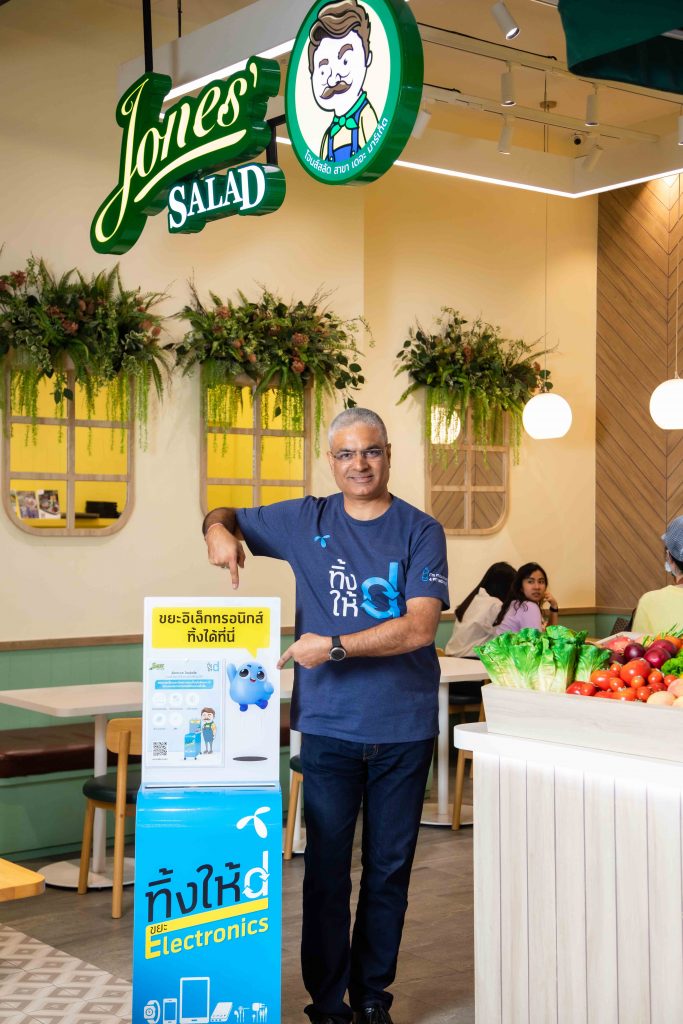1 September 2020 – Customers of organic restaurant chain Jones’ Salad can now dispose of their disused communication devices safely thanks to a new partnership with dtac’s e-waste management campaign dtac Think Hai D. dtac’s initiative to provide safe recycling services for unused mobiles, tablets and other electronic devices has added Jones’ Salad branches at The Market Bangkok, Silom Road and Central West Gate to its network of 51 dtac Halls nationwide.
Electronic waste accounts for as much as 65% of all toxic waste in Thailand, yet only 13% of it gets processed properly, according to the Pollution Control Department (PCD). And the trend is growing. Across the country, the PCD predicts that by 2021, 13.42 million mobile phones and 3.65 million audio/video devices will be thrown away.
Communication devices like phones and smart watches contain hazardous materials such as arsenic, lead and cadmium. These toxic materials have the potential to contaminate water sources and agricultural lands. A recent study at an e-waste sorting and dismantling community in Putthaisong, Buriram province by PCD experts from the 11th Regional Environment Office of Nakhon Ratchasima province found arsenic and lead levels exceeding permissible standard for residential and agricultural areas in four of the surface water and soil samples they took.

Mr. Ariya Kumpilo, CEO and Founder of Jones’ Salad, said: “Joining the dtac Think Hai D campaign is an important strategic alliance reflecting joint responsibility between Jones’ Salad and dtac to help save the environment and promote sustainable food sources. Each year, Jones’ Salad orders more than 700 tons of organic salad vegetables from a network of farmers – our important partners who grow, nurture and deliver the fine vegetables for us to prepare fresh salad with utmost care for our consumers.
“Now it is time Jones’ Salad can support them by helping to save the soil and water in agricultural areas from toxic chemical contamination due to improper disposal of e-waste. Jones’ Salad customers can bring their disused mobile phones and other electronic devices to us and we work with dtac to dispose and recycle them properly, so that toxic chemicals will not return to harm our health through the food we consume.”

Mr. Sharad Mehrotra, CEO of Total Access Communication PLC or DTAC, said: “dtac thanks Jones’ Salad for jointly setting a target with us to help manage e-waste responsibly for consumers and the general public. Together with Jones’ Salad, we expect to collect 50,000 disused mobile phones and electronic devices by the end of the year. Although this may be a small portion of e-waste overall, e-waste recycling is an important part of dtac’s environment and climate management plan under our sustainability strategy. This is on top of our ongoing initiative to collect and safely dispose of disused mobile phones and electronic devices at dtac service centers.”
dtac Think Hai D campaign works only with recycling facilities who meet international standards for e-waste disposal. All e-waste devices collected by the recycler will have their memory units wiped three times before a final overwrite to ensure no leakage of data from previous owners. Devices are then dismantled into their component parts and categorized by materials such as metals, plastics, steel and circuit boards before being recycled as raw materials for new industrial use.
For resources on how to properly dispose of your electronic devices, please go to: https://www.dtac.co.th/sustainability/ewaste/

![]()



